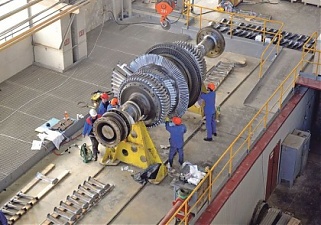Analytics, Estonia, Financial Services, Industry, Markets and Companies, Taxation
International Internet Magazine. Baltic States news & analytics
Thursday, 25.04.2024, 15:09
Estonian industrial sector's tax burden among region's average
 Print version
Print version |
|---|
According to the set objective, the impact assessment had to identify whether and if so by which national taxes and environmental and energy charges the Estonian industrial sector is in a significantly worse competitive situation compared to the reference countries, and to make policy recommendations to improve the situation, the Ministry of Finance said on Thursday.
The countries identified by the contracting authority as the reference countries in the impact assessment were Finland, Germany, Latvia, Lithuania, Poland and Sweden.
Of different taxes and fees, excise duties on fuel and gas, electricity excise duty, network charge and renewable energy charge, package excise duty and service fees of the recycling organizations, fees for the disposal of waste, mining rights fees, the fee for the special use of water, road user fee and heavy vehicle fee were compared.
According to the Ministry of Finance, it came out that even though Estonia occupies very high places on international scoreboards measuring the competitiveness of the tax systems of different countries, primarily because direct taxes and the simplicity of tax administration are compared in such surveys, Estonia's competitive situation is average as regards the indirect taxes affecting the industrial sector more narrowly, such as electricity and fuel taxes and environmental charges.
In specific sectors, such as mining and the production of construction materials, the competitive situation is poor due to high environmental charges.
The policy recommendations contained in the study include lowering the requirements for businesses to qualify for the reduced electricity excise duty rate, or electricity-intensive rate, as the relevant EU directive would allow to do so. This would ensure a more moderately competitive environment for more Estonian production companies even after the current temporary reduced excise duty rate expires. Also, the study suggests differentiating the renewable energy charge and lowering the rates of mining fees and the fee for the special use of water.
Finance Minister Martin Helme said in his comments published in a press release that the level of taxes paid by Estonian industrial companies could be lower and claims to the effect that the level of costs and taxes for businesses is very low here are not true.
"We must act vigorously to raise the international competitiveness of our companies. I'm glad to note that we have taken the first steps already, but I'm definitely planning to present new proposals to the government already in the fall," Helme said.
The survey commissioned by the Government Office was compiled in collaboration between the Ministry of Finance and the Ministry of Economic Affairs and Communications and its author is international auditing and tax consultancy firm Deloitte Advisory AS.
- 28.01.2022 BONO aims at a billion!
- 25.01.2021 Как банкиры 90-х делили «золотую милю» в Юрмале
- 30.12.2020 Накануне 25-летия Балтийский курс/The Baltic Course уходит с рынка деловых СМИ
- 30.12.2020 On the verge of its 25th anniversary, The Baltic Course leaves business media market
- 30.12.2020 EU to buy additional 100 mln doses of coronavirus vaccine
- 30.12.2020 ЕС закупит 100 млн. дополнительных доз вакцины Biontech и Pfizer
- 29.12.2020 В Латвии вводят комендантский час, ЧС продлена до 7 февраля
- 29.12.2020 В Rietumu и в этот раз создали особые праздничные открытки и календари 2021
- 29.12.2020 Latvia to impose curfew, state of emergency to be extended until February 7
- 29.12.2020 Президент Литвы утвердил бюджет 2021 года








 «The Baltic Course» Is Sold and Stays in Business!
«The Baltic Course» Is Sold and Stays in Business!

